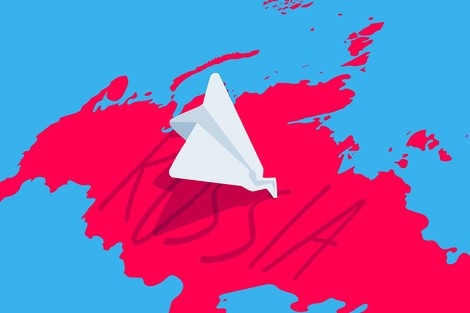Your podcast discovery platform
Curious minds select the most fascinating podcasts from around the world. Discover hand-piqd audio recommendations on your favorite topics.

piqer for: Global finds Technology and society
Prague-based media development worker from Poland with a journalistic background. Previously worked on digital issues in Brussels. Piqs about digital issues, digital rights, data protection, new trends in journalism and anything else that grabs my attention.
Russia’s Telegram Ban Is A Total Mess
Ten days ago, the media-oversight agency of the Russian government, Roskomnadzor, began blocking the app Telegram, after a Moscow court ruled that the encrypted messaging app should be blacklisted in Russia if it did not provide security services with the encryption keys that would grant access to users’ communication. Since then, a game of cat and mouse has begun online.
As part of its efforts to cut off access to Telegram, the communications regulator has been banning one IP address after another, including addresses used by Amazon and Google, after Telegram tried to use their cloud services to dodge Russian state interference. However, millions of companies and individuals that have no relation to Telegram, including banks, online shops and even the Moscow Kremlin Museum, have also been caught up in the crackdown.
Ironically, by engaging in IP hopping, Telegram itself still remains available in Russia. Its users are flocking to VPN services that enable secure Internet connection and thus offer a way to bypass the blocking measures. In fact, one of the virtual private network providers, NordVPN, announced a 300 percent increase of Russian users. Telegram’s traffic and app downloads in Russia also reportedly increased.
If you want to “better understand the Telegram ban against the wider backdrop of internet freedom in Russia”, read this Slate interview with Tanya Lokot, an assistant professor at Dublin City University, who offers her expertise and perspective on the scale of Roskomnadzor’s attempts to block Telegram.
“They’re willing to go this far to basically shut down half of the Russian internet and disrupt the work of so many other companies, including Google, Microsoft, Adobe, and a bunch of Russian companies. That surprises me more than anything,” says Lokot.
Stay up to date – with a newsletter from your channel on Global finds.
